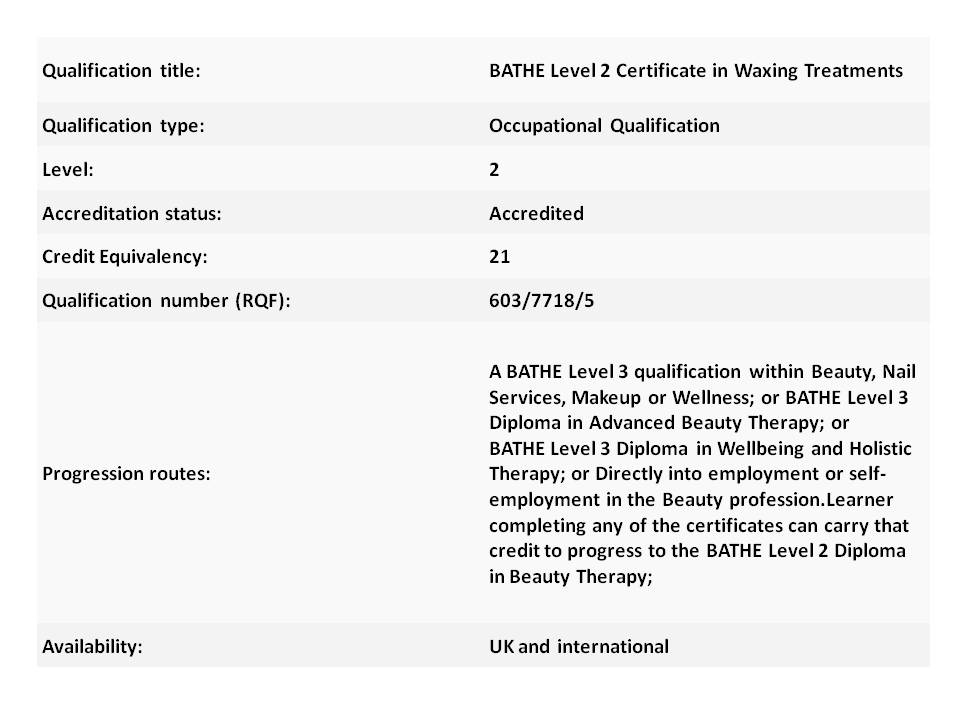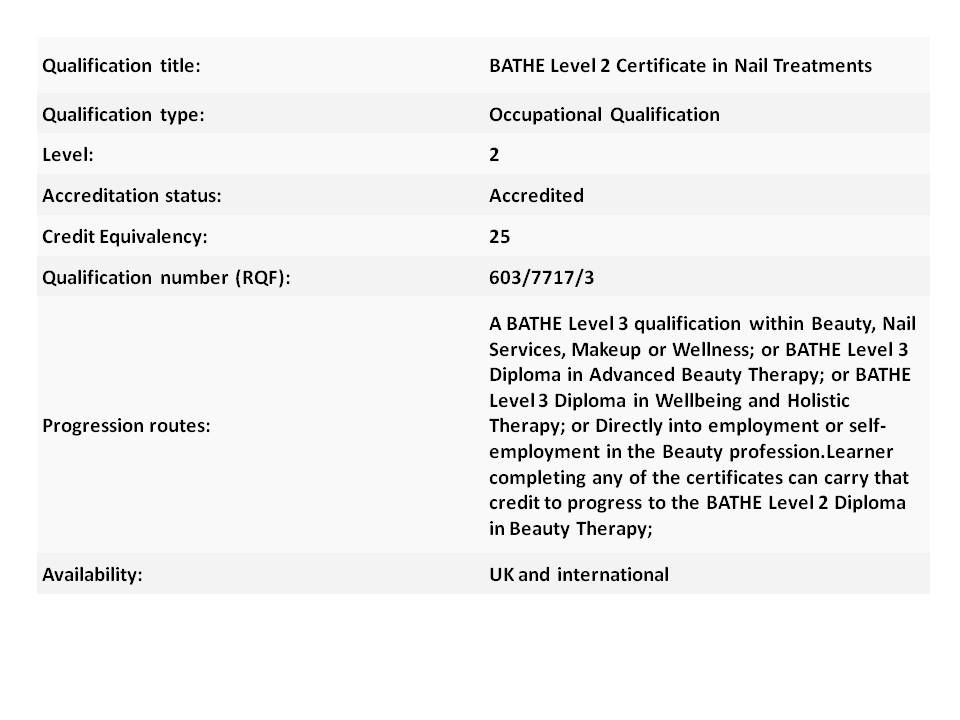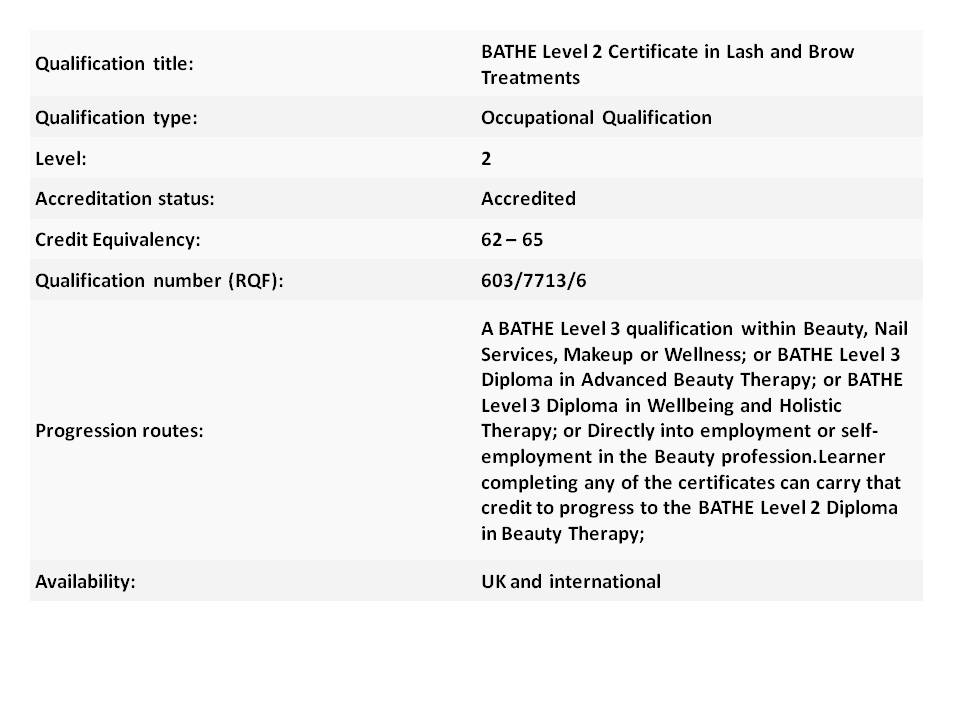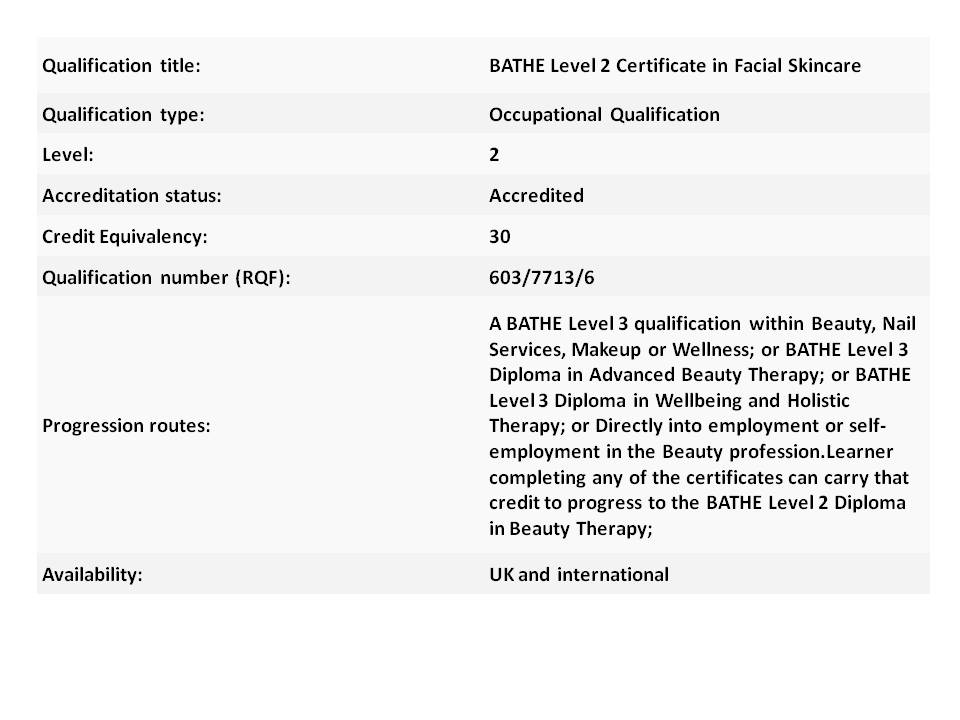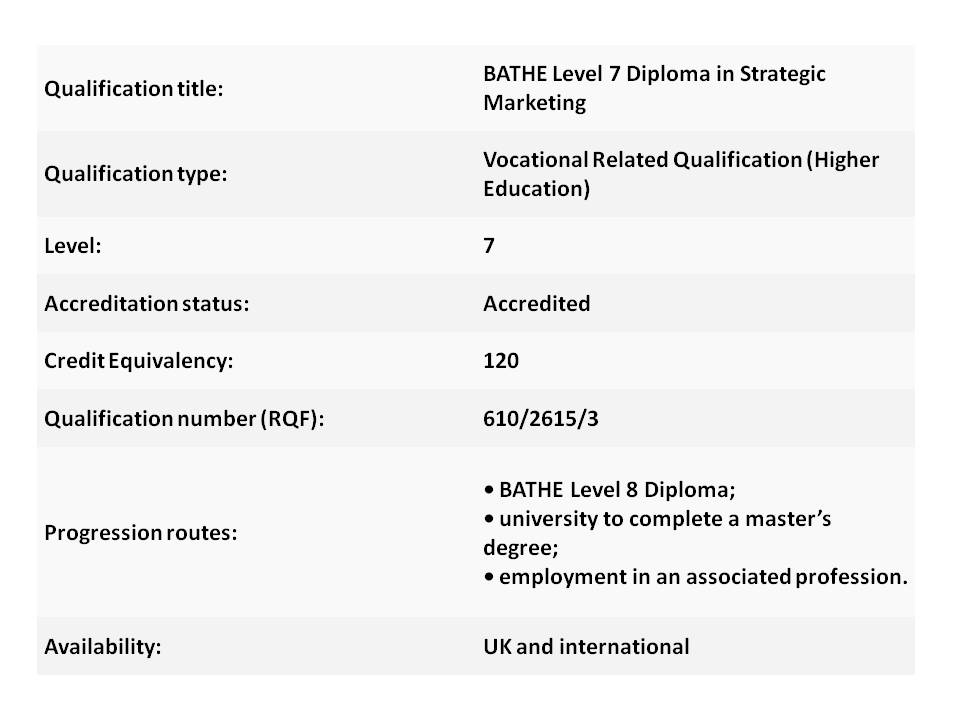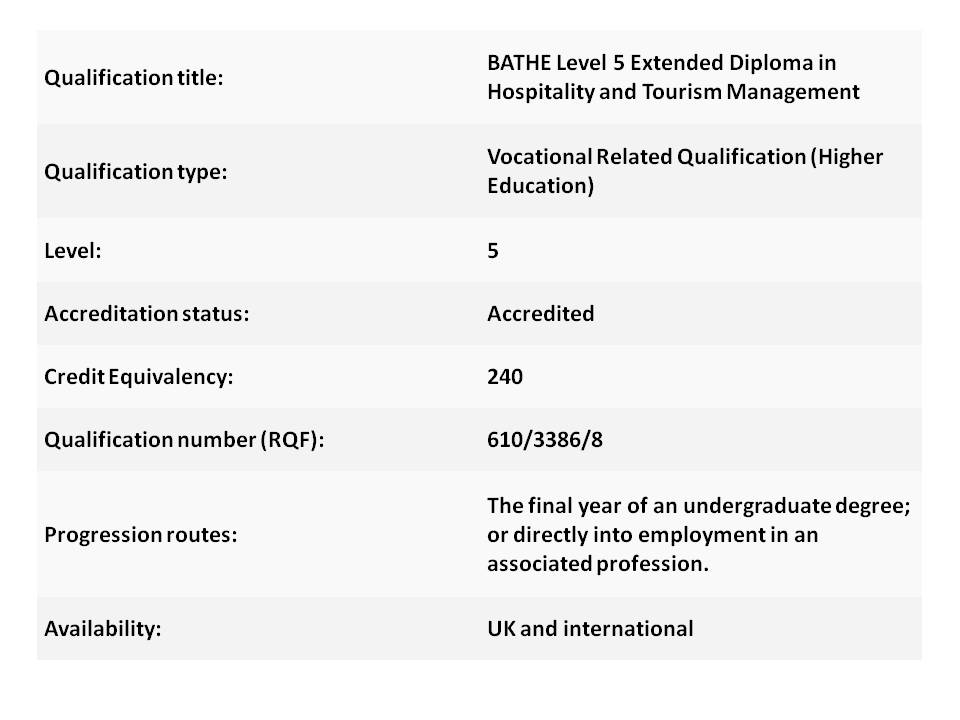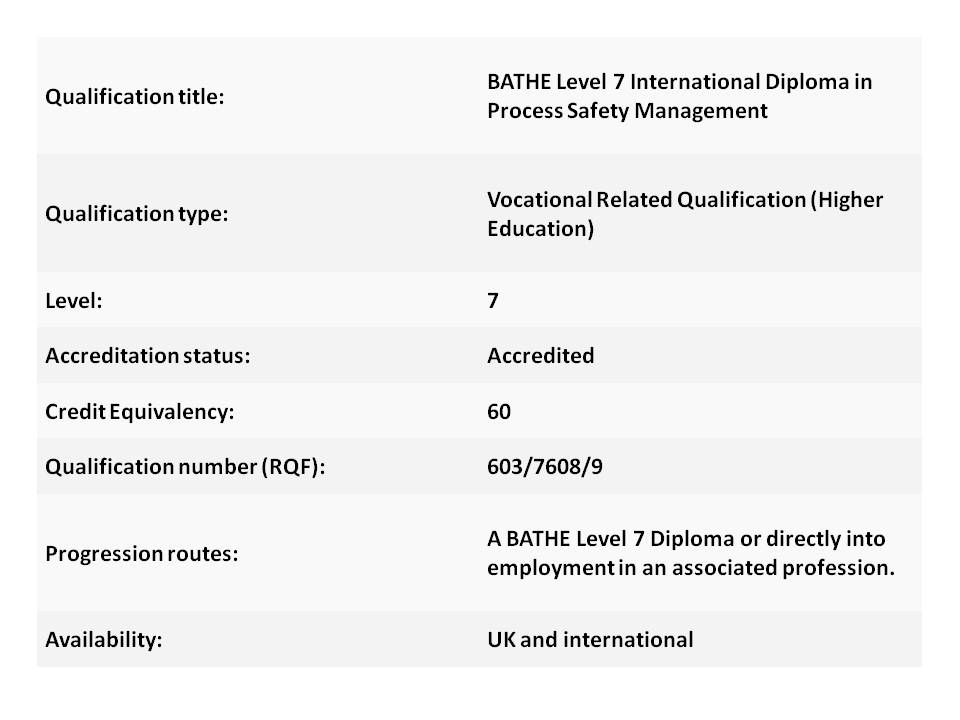Specifications
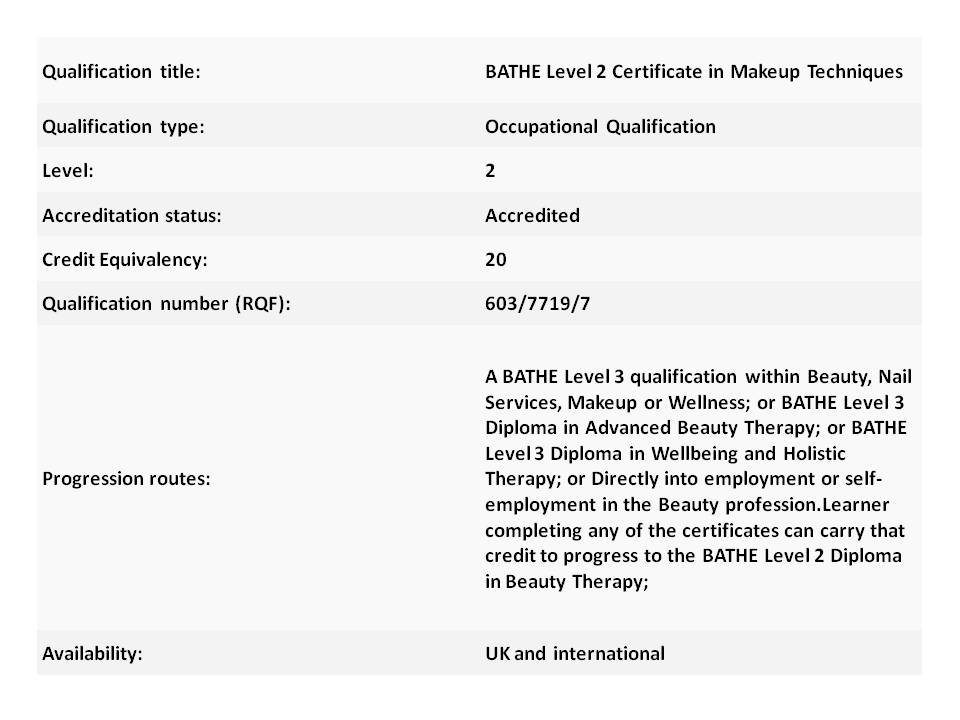
Course Overview
This range of practical and knowledge-based qualifications have been created to develop and equip therapists with skills, competencies and expertise in beauty therapy treatments – primarily relating to the face, hands and feet. These qualifications will also enable therapists to gain confidence in practice while gathering evidence in a realistic working environment.
The rationale for the qualifications is to provide recognition for those who wish to gain the necessary skills to enter employment in the beauty industry. BATHE Level 2 Diploma in Beauty Therapy is suitable for those progressing from Level 1 in Beauty Therapy as well as those new to the industry.
Units
To achieve this qualification a learner must successfully complete all three mandatory units.
Mandatory
- Health, safety and hygiene
- Client consultation
- Makeup techniques
Learning Outcomes
- Health, safety and hygiene – learners will be able to apply their knowledge and understanding of health, safety and hygiene when preparing for and providing services/treatments in a real or realistic working environment.
- Client consultation – underpins all the practical technical units within this qualification. Learners will be able to conduct a concise consultation to determine the most appropriate service/treatment to meet the client’s needs and achieve the desired outcome/s.
- Makeup techniques – learners will be able to use makeup tools, techniques, products and strip lash accessories to correct and enhance the client’s facial features, taking into consideration the purpose for the makeup – for day, evening or a special occasion and the lighting the make-up will be worn in.
Entry Requirements
- This qualification is designed for learners aged 16 years and above. Although there are no mandatory entry requirements for the BATHE Level 2 Diploma in Beauty Therapy, centres are responsible for ensuring that this qualification is appropriate to the ability of learners.
- The qualification has been designed to be accessible without artificial barriers that restrict access and progression. Entry to the qualification will be through centre interview and learners will be assessed on an individual basis.
